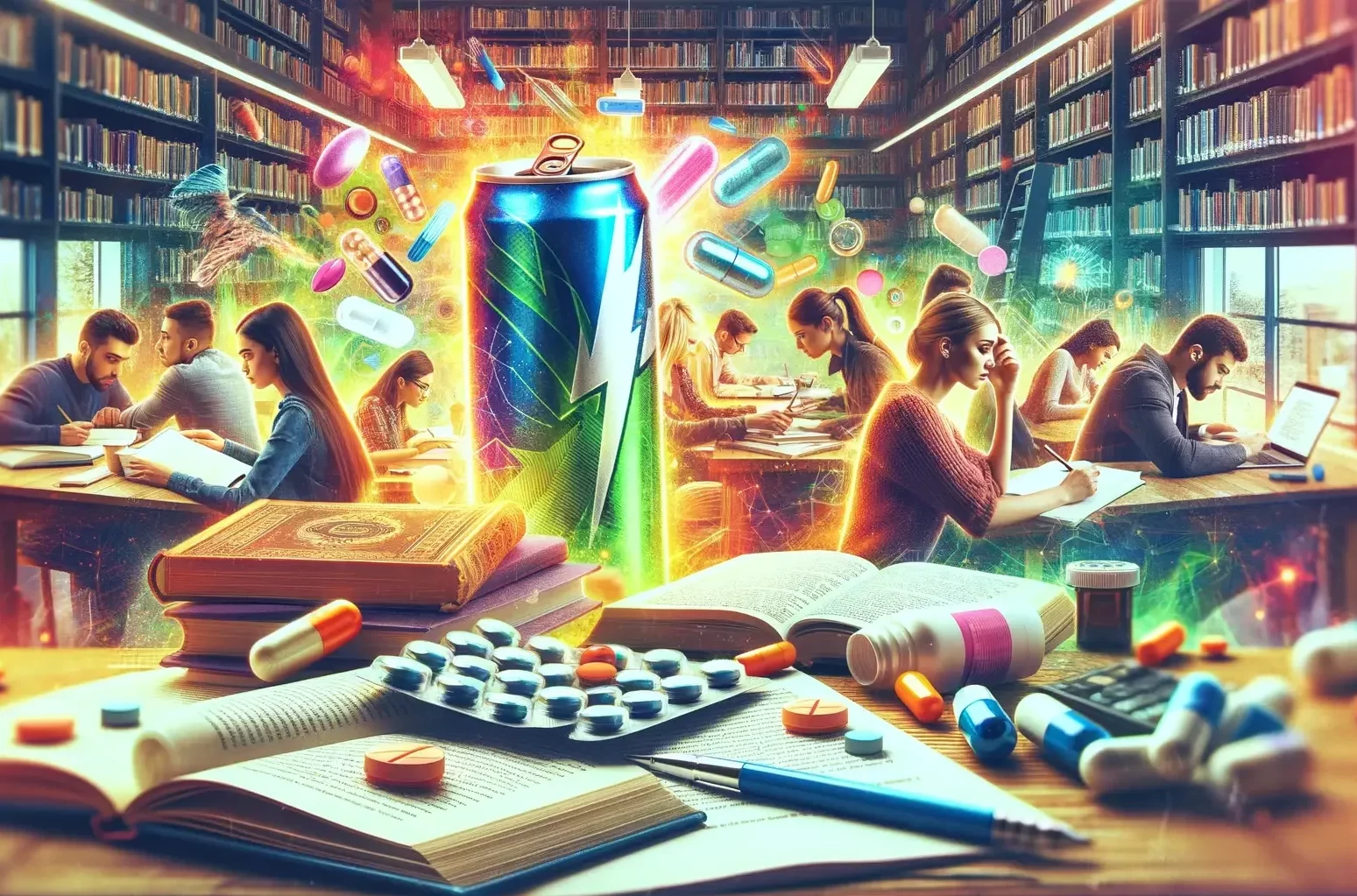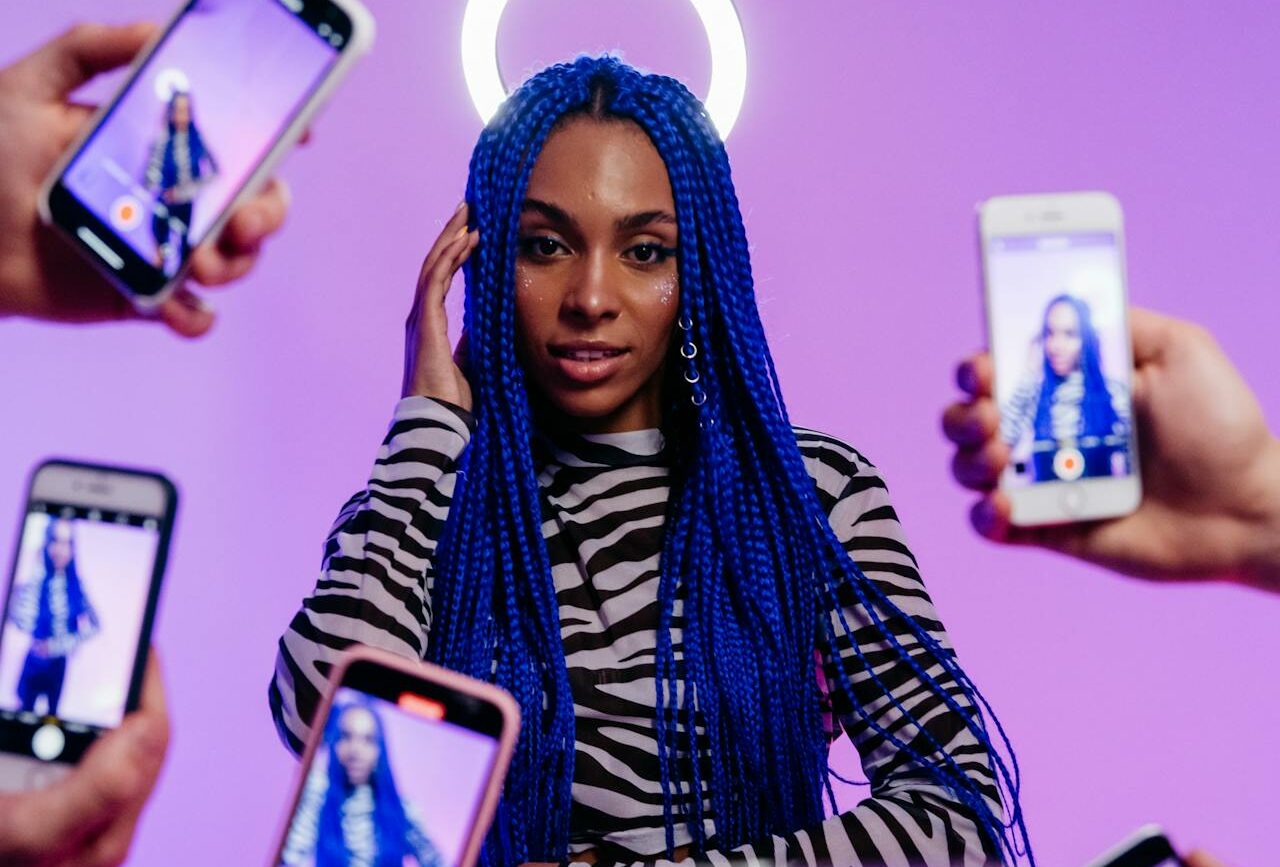Brands are shifting back to celebrity influencers—so what happens to micro-influencers? Discover how data-driven strategies balance reach, authenticity, and sustainability in influencer marketing.

Caffeine and Capsules: Study Aids on College Campuses
A trend has been steadily brewing on college campuses across the United States for decades. Amid the stacks of textbooks and the glow of laptop screens, an increasing number of students are turning to a controversial duo of allies in their academic endeavors: energy drinks and pharmaceutical study aids.
The Allure of Artificial Aid
Once the domain of coffee and late-night study sessions, the academic battlefield has evolved. Students now face immense pressure to excel academically in an increasingly competitive world and coffee isn’t enough anymore.
Enter energy drinks and ‘smart drugs’ – a quick fix for the weary and a boost for the overburdened. Marketed for their ability to enhance alertness and improve concentration, these products have found a ready market in college students.
Turns out, as we discuss in the FADS Marketing book, people love a quick fix.
A 2021 survey revealed that over 30% of college students admitted to using energy drinks as a study aid, while 15% reported using prescription stimulants like Adderall or Ritalin without a medical diagnosis. The numbers are a stark indicator of the silent stress that permeates college life.
Wiiings of persuasion
Brands such as Red Bull, Monster, and Rockstar have become closely associated with concepts of energy and endurance. Their marketing strategies are primarily aimed at young, active individuals, including college students. These brands are frequently involved in sponsoring events like extreme sports and music festivals, which are popular among the youth. This involvement effectively enhances their appeal to the college student demographic.
The advertising strategies employed by these brands are notable for portraying a lifestyle that emphasizes high energy, adventure, and resilience. This approach resonates with students who are looking to excel both academically and socially. The messaging suggests that consuming energy drinks is about more than just staying awake; its about being part of an energetic and high-achieving community.
What these brands don’t always talk about is the danger highly-caffeinated drinks can pose, including death.
Study pills or study ills?
For many, prescriptions like Ritalin or Provigil are a lifeline, a means to keep up with the rigorous demands of college education and finding a level playing field when they might otherwise be at a disadvantage. However, these drugs remain popular among students as an easy way to boost their studies.
And it doesn’t end with the undergraduate degree. A poll of 1,400 scientists and researchers in Nature, a scientific journal, found that that one in five had used cognitive enhancers. 62 percent of those had taken Ritalin while another 44 percent had taken Modafinil.
These medications, being legitimate pharmaceuticals prescribed by healthcare professionals, carry an aura of safety and legitimacy, especially among college students. The problem is this view is misleading because casual users don’t have prescriptions and aren’t being monitored by healthcare professionals. And the real bummer is – they might not even work.
Nature’s Nootropics: Navigating the nuances of natural cognitive enhancers
For those who prefer a more natural product, Nootropics are quickly being developed to save the day. These natural alternatives from brands like Brillia, Thesis and Qualia Mind market their products as alternatives to ADHD medications and tools to enhance cognitive abilities such as memory, focus, and mental clarity.
Their marketing strategies often highlight the intense stress and workload associated with academic life, positioning their products as solutions to these academic challenges. And because they are “natural” students assume they are less likely to cause side effects and are “good for you” which might not be true.
Awareness can help us find the middle path
Striking a balance in the world of study drugs and energy drinks on campus requires a thoughtful, educated approach. On our quest for the ‘middle path’, awareness is our compass.
On this path, continued research and support for those with legitimate needs is essential and non-negotiable. The progress we’ve made in accessibility helps foster a stigma-free zone where students have access to the tools they need to thrive. At the same time, those who don’t have a medical need should understand the limitations, dangers, and drawbacks of trying to get that quick fix.
The middle path also includes ensuring students have a toolkit of effective study habits and stress-busting strategies to prepare them for the academic marathon without the need for pharmacological pit stops. By mixing awareness, support, and smart study culture we find that middle path where everyone gets to enjoy the journey.
They’ve got their hooks in you.
FADS rise quickly, burn hot and fall out. They say you’re fat, you’re no fun, you need to relax, and you might even die alone.
In fact, FADS bank on the fact that you already believe all of that.
Ready to learn how it works?


